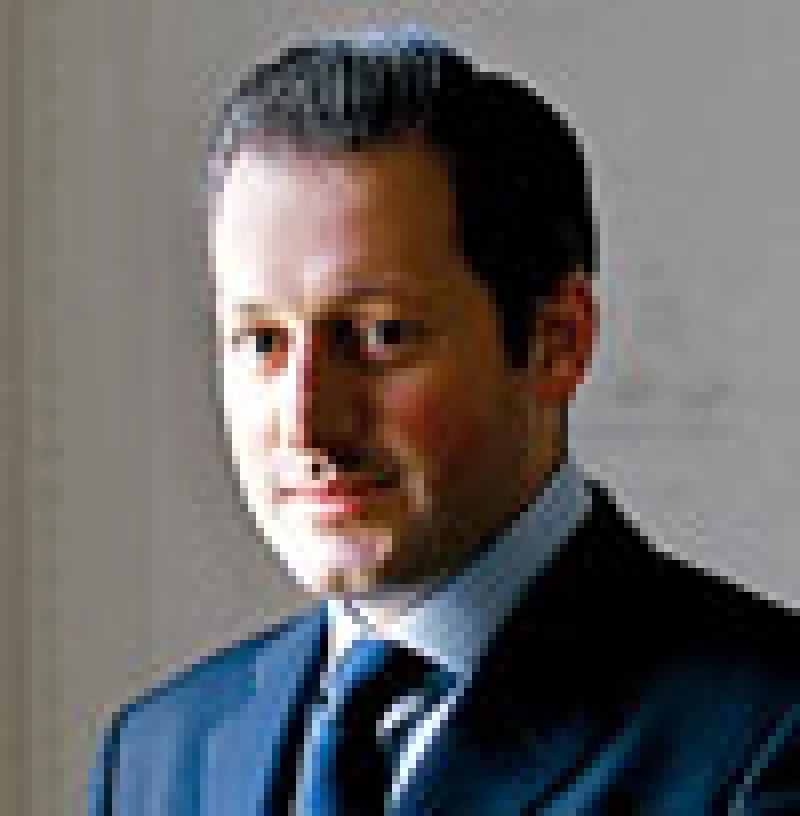From the rooftop board-room at Bank Sarasin & Co. headquarters in Basel, chief executive officer Joachim Straehle enjoys an uplifting view of the Swiss city’s 14th-century Gothic cathedral, the Münster, its twin red-sandstone towers soaring above the Rhine River. For Straehle the private banking horizon at Sarasin is just as inspiring. “Last year we tripled our new money inflows from clients, and I don’t see any slowdown this year,” he asserts.
Switzerland’s private banks may be shrouded in secrecy, but there’s nothing understated about their bold attempts of late to capitalize on the challenges facing the large universal Swiss banks and to snap up the growing number of superwealthy customers created by the oil-rich Middle East and the booming economies of Asia. Sarasin has opened five new offices in these lucrative regions in the past three years, with an eye on ultra-high-net-worth individuals, who typically have more than €30 million ($46.7 million) in assets at a single bank.
Prospects for growth are also improving closer to home, where subprime-related troubles at Swiss giants UBS and, to a lesser extent, Credit Suisse, are shaking loose a once-loyal customer base. UBS is reeling from U.S. probes into whether it helped wealthy Americans hide income from the Internal Revenue Service by stashing it in overseas accounts. Straehle isn’t about to gloat over the big Swiss banks’ travails, but neither will he deny that Sarasin has reaped a windfall. “Have we benefited?” he asks. “Definitely.”
Swiss private banks such as Sarasin, Bank Julius Baer & Co., Pictet & Cie and Vontobel Group avoided the U.S. subprime mortgages that have wreaked havoc on the global financial system and damaged the reputations of the Swiss banking powers. UBS has announced $38 billion in write-downs since the third quarter of 2007 — more than any bank in the world — including $19 billion in the first quarter of this year, when it reported a $12 billion loss. Credit Suisse has taken Sf6.6 billion ($6.33 billion) in write-downs, including Sf5.3 billion in the first three months of 2008, resulting in its first quarterly loss in five years. In an April equity research report, J.P.Morgan Securities estimated that UBS lost Sf4.5 billion in wealth management outflows during the first quarter and predicted that the total for 2008 would reach Sf8.5 billion.
Today’s unsettled market favors the traditional strengths of Swiss private banks: personalized services and an emphasis on wealth preservation instead of the high-risk, high-return investments pursued in recent years. “Historically, every crisis tends to reinforce us because we are viewed as stable, with a long-term perspective that looks beyond the current cycle,” says Jacques de Saussure, one of eight managing partners at Geneva-based Pictet.
Nonetheless, the private banks are not immune to a prolonged downturn, notes Andreas Venditti, a Zurich-based banking analyst for Zürcher Kantonalbank. And an escalation of the current global crackdown on tax evasion could spill over onto Swiss banks of all sizes. In May the U.S. Department of Justice charged former UBS private banker Bradley Birkenfeld and financial adviser Mario Staggl of Liechtenstein with helping wealthy Americans — including Igor Olenicoff, a billionaire California real estate developer who is cooperating with U.S. prosecutors — evade taxes. Birkenfeld, who left UBS in 2006, pleaded guilty in mid-June to a charge of helping Olenicoff evade millions of dollars in federal income taxes. Martin Liechti, UBS’s head of wealth management for the Americas, was detained briefly in April as a potential witness in the investigation. In a statement issued in May, UBS said it was cooperating with the Justice Department but declined further comment during the ongoing investigation.
In the meantime, U.S. authorities are pressuring UBS to disclose the names of thousands of its wealthy American clients. The Senate permanent subcommittee on investigations is scheduled to hold hearings this summer on offshore products sold to Americans by UBS and LGT Group, a Liechtenstein bank. In a separate case the Justice Department and the IRS are investigating tax shelters set up by Rabobank Group — the Dutch bank that has majority control of Sarasin — for General Electric Co., Merck & Co. and scores of other U.S. corporations between 1997 and 2004. Investigations into tax evasion are also being launched in Europe. In February the German government began to look into confidential accounts German clients had established at LGT and subsequently extended the probe to Zurich-based Vontobel. Germany’s actions led Italy and France to announce in March that they were investigating Liechtenstein accounts held by their nationals on suspicion of tax evasion.
The industry thought it had dealt with concerns about tax evasion in 2005, when Switzerland made a deal with the European Union to tax the Swiss bank accounts of EU clients and return most of the revenues to their home countries. Under the accord Swiss banks agreed to impose a withholding tax on the interest earned on the savings accounts of EU clients and were allowed to preserve the anonymity of those clients. “But the [tax evasion] issue has not gone away — if anything, it is again coming to the fore,” says Philip Marcovici, a partner who specializes in international private banking at the Zurich office of law firm Baker & McKenzie.
That’s because tax revenues from Swiss accounts have been far lower than EU governments anticipated, and undeclared income is higher than ever. In a 2007 report Boston Consulting Group estimated there was $6.7 trillion in offshore bank accounts, and the income from much of this total was presumably undeclared. Three quarters of the tax — which began at 15 percent in 2005 and will rise to 35 percent in 2011 — is turned over to the home countries of the clients, and the Swiss government pockets the rest. But Swiss Federal Department of Finance figures show that EU countries collected only Sf489.9 million in such taxes last year, a piddling amount compared with the more than $1 trillion that EU clients keep in Swiss banks, according to BCG. Most of the undeclared holdings are in stocks and bonds, and the agreement with the EU applies only to interest-bearing savings accounts, not to stock dividends or capital gains.
Still, these are sweet times for Swiss private banks, especially considering the poor prognosis given them by financial experts at the start of this decade amid the plunging equity markets that followed the dot-com implosion in 2001. Back then their costs were mounting steeply to meet new international requirements to clamp down on money laundering by terrorists and drug traffickers and to modernize information technology platforms. And they had to prove they could provide access to the same sophisticated, high-return products with which global institutions were aggressively courting their superrich clients.
But the Swiss private banks fought back. “Why did the rumors of their death turn out to be exaggerated?” asks Ted Wilson, a senior consultant at Scorpio Partnership, a London-based wealth management consulting firm. “Because they reinvented themselves.”
To overcome these challenges the private banks adopted a variety of strategies. Sarasin and Baer moved to end family control and to expand their capital bases. Vontobel took a middle path, keeping the family in the saddle but issuing shares to institutional and retail investors. Geneva-based family firms Darier Hentsch & Cie and Lombard Odier & Cie merged, in part to share the burden of new IT investments. And Pictet kept its partnership structure intact while growing organically at a rapid pace in its traditional European domain as well as in the Asian and Middle Eastern markets. In fact, all have expanded into emerging markets: Sarasin has opened three offices in the Middle East, Julius Baer two, and Pictet and Vontobel one each. In Asia, Sarasin and Baer have opened two offices and Pictet three.
Once the private banks streamlined their management, updated their technology and bulked up their finances, they discovered they could compete with the global players — or at least induce wealthy clients to divide their holdings among big banks and smaller, high-service, discreet Swiss entities. “There aren’t many economies of scale that you can achieve in wealth management,” says Zürcher Kantonalbank analyst Venditti. Private bankers can serve only a limited number of clients, but they can act as nimble middlemen, charging their customers fees for advising them on a broad range of investment vehicles offered by the likes of Deutsche Bank and HSBC Holdings. These are some of the reasons “the biggest providers of wealth management have only minute fractions of the world market,” notes Pictet’s de Saussure.
As much as any of its peers, Sarasin demonstrates the sometimes stressful transformation that was necessary to survive and prosper in the shadow of the global giants. It traces its banking operations back to 1841, when it was founded in Basel as a general merchandise trader that also extended loans to clients and others. By 1872 it was a full-fledged bank known as J. Riggenbach. The name Sarasin was adopted only in 1900, when Alfred Sarasin-Iselin, an investor in the bank, became its owner. Over the next century Sarasin grew into a venerable family-owned private banking firm. But like all the banks, it was battered by the collapse of global equity markets early in the new millennium.
To help its recovery, Sarasin converted itself into a limited company in 2002 and sold Rabobank a 28 percent stake in its expanded equity capital through a share swap valued at Sf378 million. Rabobank also negotiated a call option to purchase an additional 18 percent stake within the next seven years and gain majority voting control. (Despite owning only 46 percent of equity, Rabobank would have enough class-A shares to claim 69 percent of the voting rights.) In the meantime, Sarasin and Rabobank agreed to cooperate in seeking private banking clients abroad and to split fee income in half. The idea was that Sarasin’s vaunted Swiss brand and Rabobank’s triple-A credit rating would prove an irresistible combination to the growing ranks of Asian and Middle Eastern millionaires seeking wealth managers for their fortunes.
But for the first five years, it was a rocky marriage. A clash of styles between traditional, secretive Sarasin and the more international, corporate-minded Rabobank led to disputes over how to proceed with deals and share commissions. Straehle cited the failure of Rabobank to refer clients to Sarasin’s private banking arm and an overall unwillingness on both sides to offer each other’s products. “Cross-selling initiatives were started but mostly came to a standstill because these two mentalities were in conflict,” says the 50-year-old Straehle, Sara-sin’s CEO since September 2006. For the seven years before that, Straehle — a voluble, craggy-faced executive who delights in American slang — worked at Credit Suisse private banking units in Switzerland and abroad, rising to head of international private banking. He was hired by Sarasin to make the relationship with Rabobank work.
A breakthrough took place in 2007 in the Middle East, where Sarasin, using Rabobank’s investment banking arm, devised Sf1.7 billion worth of structured products. The most popular of these were linked to a basket of commodities that included oil, minerals and grains. “We sold them like there was no tomorrow, with Sarasin and Rabobank splitting the income,” says Straehle. Soon, Rabobank was introducing its loan clients in Asia to Sarasin private banking executives in Hong Kong and Singapore. “In these subprime times, if you approach clients in Asia and the Middle East with a good Swiss-brand private bank backed by a top-rated international bank — well, that’s a pretty strong sales pitch, and we have seen the results big time,” boasts Straehle.
In April 2007, Rabobank exercised its option for the additional 18 percent of Sarasin’s shares, paying Sf450 million. Net new money growth, or the difference between inflows and outflows from private banking clients, hit Sf8 billion at Sarasin last year, compared with Sf2.7 billion in 2006. Asia and the Middle East were the growth drivers, with Sf3.2 billion in net new money growth, up from only Sf500 million in 2006.
The bank’s total assets under management, including both private banking and institutional clients, grew from Sf73.3 billion in 2006 to Sf83.0 billion last year. Assets under management of private banking clients grew from Sf50.6 billion in 2006 to Sf57.0 billion in 2007. Net profits leaped 201 percent in 2007, to Sf304.6 million, thanks largely to the sales of Sarasin’s retail banking subsidiary in Luxembourg to Crédit Agricole for Sf203.3 million and of its brokerage operations in Zurich to NZB Neue Zürcher Bank for Sf21.4 million. The deals, which withdrew Sarasin from retail and brokerage activities, have focused the bank on its core private banking business. Adjusted net profits were Sf174 million last year, a 23 percent rise over 2006’s Sf141 million.
Going forward, Sarasin is focusing on emerging markets, where the number of millionaires is growing at a faster rate than in Europe. Sharad Nair, who heads Sarasin’s private banking business in Dubai and Qatar, estimates that five years ago ultra-high-net-worth individuals accounted for only 15 percent of his portfolio (clients with less than €30 million made up the rest). Today the proportion is 85 percent. “They can be very demanding when they have $200 million or more parked with you,” says the Indian-born Nair, 34. He can expect to be summoned at a moment’s notice to a client’s secondary residence in London or Geneva, or called at any time of day from anywhere in the world. (He always carries two roaming cell phones, one with a Dubai number and the other with a U.K. number.)
Introductions to the superwealthy invariably come through referrals from Nair’s existing clients. A first meeting, he says, will be taken up entirely by small talk aimed at reassuring the prospective client that Nair is “respectable, trustworthy and successful.” His marriage and children are good indicators. So are status symbols like a house in the most upscale neighborhood of Dubai, a luxury Swiss watch (a Rolex) and an expensive car (an Infiniti). Nair, who spent a dozen years in private banking in the United Arab Emirates before joining Sarasin in 2006, still recalls a painful lesson in automobile ownership from a decade ago. He drove his Japanese economy car to a new client’s villa in Dubai to discuss how he would manage several million dollars. “But then he walked me out, took one look at my car and decided not to entrust me with more than $100,000,” Nair says.
Although Julius Baer took a different path than Sarasin, it has emerged as the largest of the Swiss private banks — with more than Sf400 billion in assets under management last year — but only after a turbulent transition from family-controlled bank to publicly owned financial group. Some things haven’t changed at the 118-year-old institution: From its headquarters, a five-story labyrinth spanning two prewar buildings in the heart of Zurich’s financial and retail district, employees can still hear the clatter of electric trams on the Bahnhofstrasse and mournful foghorn blasts from ships on nearby Lake Zurich. But all that remains of the family presence is the name and chairmanship of Raymond Baer, likely the last of his family to occupy the post.
Tempted by the possibility of becoming a global bank, Julius Baer branched out in the 1990s from private banking and asset management into brokerage, trading and specialized lending. But the bear market of 2001–’02 sent the bank reeling. And even though it recovered over the next two years, Raymond Baer decided the company’s survival depended on faster growth within a narrower private banking framework.
In January 2005, after a falling-out over the bank’s direction between Raymond and his cousin Michael Baer, who headed the private banking business, the family agreed to give up control of Julius Baer by the end of the year by doing away with the dual share structure and reducing its voting rights to match its 18 percent stake. “Getting the family to give up voting control was a key to Julius Baer’s expansion,” says Matthew Clark, a London-based banking analyst for Keefe, Bruyette & Woods.
In September 2005, Baer acquired three small Swiss private banks — Banco di Lugano, Ehinger & Armand von Ernst and Ferrier Lullin — as well as London-based GAM, a highly regarded fund manager, from UBS for Sf5.6 billion. As part of the agreement, UBS took a 20.7 percent stake in the enlarged Julius Baer Group, which instantly became the third-biggest private banking operation in Switzerland, after UBS and Credit Suisse. The deal also brought to Julius Baer as its new president and chief executive Johannes de Gier, a former UBS deputy chairman who announced that Julius Baer would aim to be a pure-play wealth manager, combining private banking and asset management.
Over the next two years, Julius Baer more than doubled its staff, to 4,100 by the beginning of 2008, including a total of 550 private bankers. Profits before taxes for Baer’s private banking operations were Sf534 million in 2007, up 27 percent from Sf422 million in 2006. In June 2007, UBS sold its stake in Julius Baer for Sf4.1 billion, with Baer buying back 5 percent of the shares and the rest placed on the open market. In 2007 net profits rose to Sf1.14 billion from Sf868 million the year before, and assets under management swelled to Sf405.1 billion from Sf360.7 billion. Baer attracted Sf8.7 billion in net new money, up 32.4 percent from 2006. The biggest growth drivers have been clients in the Middle East and Asia. Baer now has offices in Abu Dhabi, Dubai, Hong Kong and Singapore. Business in Asia and the Middle East accounts for more than 10 percent of its overall asset base.
Unlike Sarasin and Baer, Zurich-based Vontobel has embraced a hybrid model in both ownership and business strategy. Ever since its creation in 1936, the bank has been firmly under the control of the Vontobel family and its foundations, which together hold 54.6 percent of the shares. Despite its smallish size Vontobel has resisted becoming a pure wealth manager like Julius Baer and Sarasin and has continued its three-pronged pursuit of private banking, asset management and investment banking.
Last year assets under management climbed to Sf79.5 billion from Sf71.2 billion in 2006. Net income reached a record Sf263.2 million, barely above the previous year’s Sf259.5 million. In terms of profits before taxes, private banking accounted for Sf83.1 million in 2007, up from Sf73.8 million in 2006; asset management delivered Sf86.3 million, a sharp increase from Sf71.1 million a year earlier. The laggard was investment banking, where profits before taxes declined to Sf181.4 million in 2007 from Sf194 million the year before. Vontobel executives emphasize that the bank held no subprime loans and attribute the dip to the downturn in global equity markets and the overly strong Swiss currency.
Vontobel has largely ignored private banking in Asia and opened its first office in the Middle East just this March, in Dubai. Instead, it has sought new private banking clients closer to home, in its long-established German stronghold and in the emerging markets of Central and Eastern Europe, including Russia. “These clients are looking for diversification beyond their own countries,” says Walter Thoma, head of private banking. These markets were the drivers behind the Sf2.4 billion in net new money in 2007, more than doubling the Sf1.1 billion Vontobel logged the year before.
The bank’s strongest selling points for foreign clients are tax protection products and secrecy. The typical German investor who turns to Vontobel is the heir to a Mittelstand company, one of the medium-size family enterprises that are the backbone of the country’s postwar prosperity. Increasingly, these companies are being sold after two or three generations to allow the owners to retire affluently and their progeny to invest in other businesses. With Vontobel’s so-called tax optimization products, such an investor can place all the financial assets from the sale of a company into a fund that maximizes aftertax returns or postpones capital gains taxes until the fund is sold years later. Thus far, among Swiss private banks, only Vontobel has been investigated in connection with the tax evasion probes.
While they pursue growth in Asia and the Middle East, the private banks say Europe remains a strong market, mainly because investors are willing to accept the higher tax cost of banking in Switzerland in return for anonymity. “There is an increasing reaction by clients to seek more confidentiality,” says Boris Collardi, Julius Baer’s COO. In Italy, for example, wealthy individuals reacted with anger this May when the outgoing center-left government posted on the Internet the tax returns of 38 million citizens. The official responsible for that action, Deputy Finance Minister Vincenzo Visco, who has carved out a reputation as a zealous fighter against tax evasion, defended the massive disclosures in the local press, saying that they were in the interest of “transparency and democracy.”
But some Italian high-net-worth investors are likely to reach other conclusions. “A family that played by the rules and paid all its taxes now has its income published in the newspapers so that kidnappers and other criminals know who to target,” says Zurich lawyer Mar-covici. “What it does is tell people they don’t have any privacy rights and fuels the thought that tax evasion is the answer — which it isn’t.”
Clearly the issue isn’t going away. While governments continue to crack down on tax evasion, Swiss private banks will push forward with plans to expand into new markets abroad and to profit from troubles dogging their competitors closer to home.






